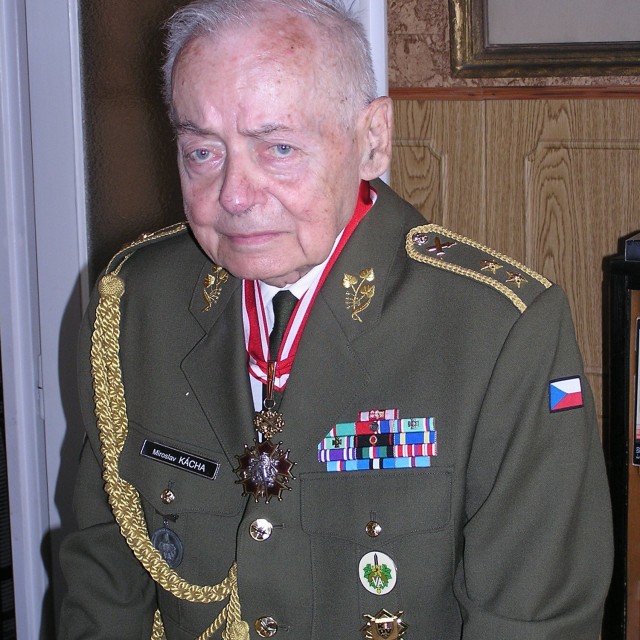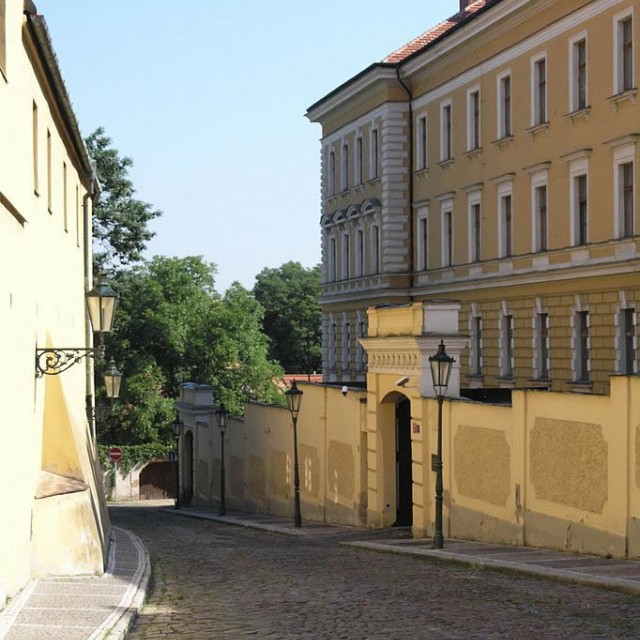A night of horror
When Miroslav Kácha was taken to the Little House, janitor Pergl was waiting for him there. “He gave me a lecture, a threatening one of course. He had a quotation printed on the wall of his office: ‘No mercy is shown or will be shown to traitors – Alexandr Beck: Moscow stands behind us.’ And because it was Sunday, he left. I stayed and I could hear the music of the bells of Loreta.” In the corner of the cell there was an old bucket serving as a toilet and instead of using toilet paper the warden recommended Kácha to use his finger. “When I wanted something, I was answered with insults or slaps. I wasn’t given anything to eat, of course. The night was a night of horror. I wasn’t used to something like that: to lie on the floor on my back, not move at all, my hands on a dirty blanket. When I fell asleep and turned on my side, they immediately started to yell. When this repeated itself, they forced me out of bed and I had to walk in the cell until morning.” From Monday morning the interrogations continued. Kácha tried to play a little trick on the interrogators: “I made up a story that I had a meeting with a certain person whom I described in such a manner that by age and appearance it resembled colonel Korda. I wanted to protect him most of all because he was our leader and he knew the most.” Korda was the leader of Kácha’s resistance group. In the end, he was also arrested because one of the interrogatees had talked. Mr Kácha had to put up with the severe interrogations in the “Little House” for two months. “On Saturday night they drove me from the ‘Little House’ to the regional headquarters in Malostranské square. There were different people from the Defense Intelligence there, different questions, and a different group of those who did the beating. The name colonel Korda was mentioned, so I knew that the situation was bad, that somebody had talked. I didn’t blame anyone for that, although it is a matter of character, but I’d say that with a greater share of physical resilience and a matter of coincidence, if the interrogators, or rather torturers and executioner’s bastards, use their methods, then a person just falls apart.”
Hodnocení
Hodnotilo 0 lidí
Routes
Not a part of any route.
Comments
No comments yet.







